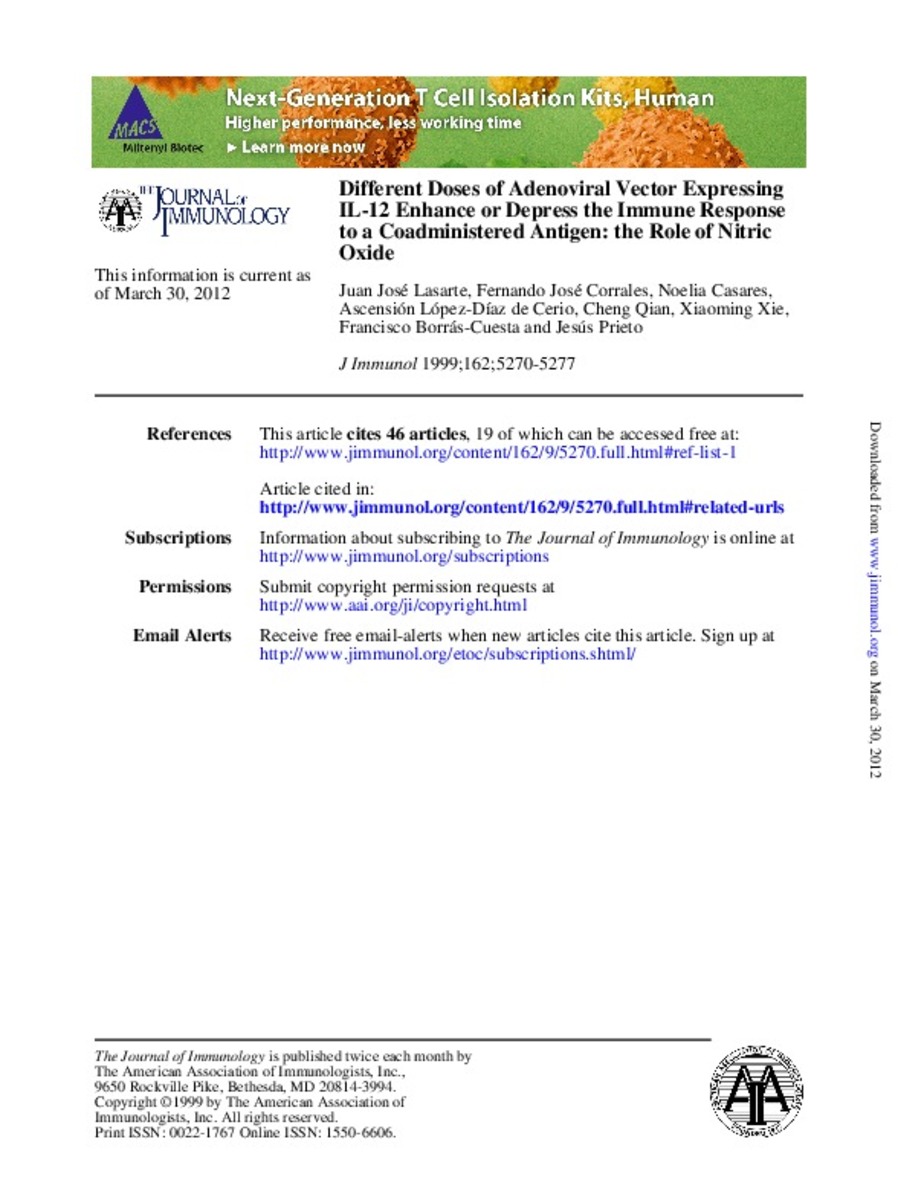Different doses of adenoviral vector expressing IL-12 enhance or depress the immune response to a coadministered antigen: the role of nitric oxide
Keywords:
Adenoviridae/genetics
Adenoviridae/immunology
Antigens, Viral/immunology
Genetic Vectors/administration & dosage
Genetic Vectors/immunology
Interleukin-12/genetics
Nitric Oxide/physiology
Publisher:
American Association of Immunologists
Citation:
Lasarte JJ, Corrales FJ, Casares N, Lopez-Diaz de Cerio A, Qian C, Xie X, et al. Different doses of adenoviral vector expressing IL-12 enhance or depress the immune response to a coadministered antigen: the role of nitric oxide. J Immunol 1999 May 1;162(9):5270-5277.
Statistics and impact
0 citas en

0 citas en

Items in Dadun are protected by copyright, with all rights reserved, unless otherwise indicated.







